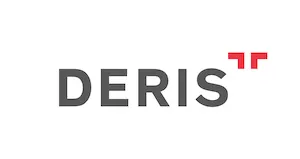Current Legislation
The current Law No. 5846 on Intellectual and Artistic Works (Copyright Act) identifies the below-listed acts as a copyright infringement unless the copyright owner consents thereto:
- Reproduction
- Making the work available to the public
- Alteration
- Distribution
- Communication to the public by devices enabling the transmission of signs, sounds and/or images
With a substantial increase in the number of the works shared online in today's digital world, take down requests gain more importance in combating the online copyright violations.
Current Practice
The additional article 4 of Copyright Act which constitutes the main basis of the current practice regarding the copyright take downs was introduced with the amendment of February 21, 2001. This article requires the following steps to be taken respectively by copyright holders in case an online infringement is detected:
- to contact the content provider for the removal of the infringing content within 3 days,
- if the request is not satisfied within three days; to ask the public prosecutor for issuing an order against the relevant service provider in order to block the internet access of the content provider. Should the infringement is ceased, the access provided to host/content provider will be reinstated.
In case of a failure to stop the infringement through the means explained above, the copyright holder will be entitled to file a criminal action against the content provider.
No need to say that the stipulated 3 days period for content /host providers to take action can be considered long in digital platforms where dissemination of information has become extremely fast.
In addition to this impediment caused by high speed of the new communication methods, accessibility of contact details of the host providers may turn out to be quite challenging for the functioning of "notice and takedown" system. The reason is that the conditions for the liability of content/host providers would only be applicable upon notification. As the addresses of the content/host providers may not always be indicated expressly on the relevant website, the copyright holder may face difficulty to serve the notice.
What does the New Draft Amendment state :
There has been a longstanding preparation of Draft Copyright Act ("Draft") which aims to substantially change the current Copyright Act. The Draft which was open to public by Turkish Ministry of Culture and Tourism regulates the take down requests among other issues.
According to the Draft, the copyright holders will not be required to follow the current procedure in order but will have a chance to ask the public prosecutor and request the ban of access to the infringing content in case of urgency.
After a request is filed within the frame of this proposal, the public prosecutor will be authorized to render a decision to block the infringing content until the infringement is terminated. If the content provider does not take any action and maintain its illegal activities despite these measures, access to the entire website containing the infringing content can be blocked. The decisions rendered by the public prosecutor would be subject to the approval of the Criminal Court. In the absence of an approval by the Criminal Court within 24 hours, the public prosecutor's decision will be automatically lifted.
Provisions concerning P2P Platforms
The Draft introduces new provisions concerning the peer to peer platforms.
With the modern P2P networks, the sharing becomes faster when more users download a file. Through these highly sophisticated platforms, the packages are not transferred from a central point to the users as a whole but split and transferred in smaller sizes between all the users involved. Therefore; the more users attend to share and benefit from infringing content the quicker these transfers take place.
The Draft allows collective societies to mark the works protected by copyright and keep a track of whether any online infringement of these works occurs. Once a user of a peer to peer platform is found to infringe copyright by this method, either the Ministry or the institutions authorized thereby would send warnings to the user. Unless the infringement is ceased upon receipt of two notifications, the internet speed of such users will be slowed for a certain period up to six months.
In the Draft's preamble, it is stated that the new regulation regarding peer to peer networks intends to stop infringements without any judicial intervention and raise an awareness of copyright among internet users in the long run rather than pursuing a penalizing purpose.
Comment
It can be said that the Draft aims to facilitate a more effective enforcement procedure for copyright owners. This aims to allow the copyright owners to directly contact the public prosecutor instead of going through all the warning procedures (as in "notice and take down" principle) to be followed with content/host providers.
The measures foreseen for peer to peer platforms may also play a critical role in a rather challenging environment for copyright holders and provide a deterrent protection against infringing individuals, should the internet protocol addresses are properly identified.
The content of this article is intended to provide a general guide to the subject matter. Specialist advice should be sought about your specific circumstances.



